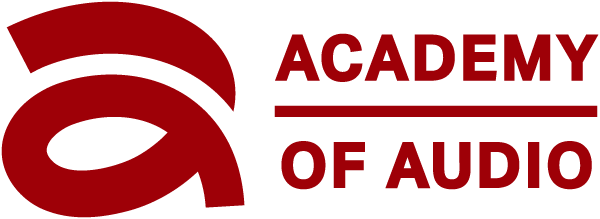I studied audio back in 2000, and a month before my course started, I got a gig in a rehearsal studio. My job was basically to mind the rooms, set up gear for the bands, and help out however I could. But that one opportunity cracked open the door to so many others—live sound jobs for the bands I met there, and then eventually studio work (because the owners weren’t actual sound engineers).
Looking back, one of the best things I had going for me at the time was being young and, frankly, a bit naïve about my abilities. Sure, I did a decent job, but I had no real clue how much growth I still needed. Even 25 years later, every step forward reminds me how huge our responsibility is as engineers, and that perfectionism can be paralysing when it comes to putting yourself out there. But remember: we’re not surgeons. Nobody’s going to die if we get something wrong. So why not go for it? More often than not, we hold ourselves to a higher standard than our clients ever will.
Networking was (and still is) absolutely key. Those rehearsal rooms and live gigs helped me build my first real network for job opportunities. Friends and family friends then started referring me to other people. Next big step? Working part-time in a music shop selling pro audio. I stayed there for a good 3-4 years, and while it didn’t exactly make me rich in clients, it did connect me with two people who changed my entire career trajectory.
One was a friend of a client—he was the music director for a super-successful TV talent show (yes, the kind people “idolised”). Over time, he gave me a shot at mixing a record for a major label. There were some smaller “test” jobs first, but through those connections, I met big commercial studio owners and some of the country’s best session players. It was a major confidence boost, and my work improved because I had all these experts around me. Suddenly, I had to step up as the expert in my own domain—engineering, producing, and running a business.
The other connection came through a colleague at the music shop. Years later, he roped me into helping at a songwriting camp for one of Australia’s largest indie labels. In a single week, I worked with about 20 household names (including one who went on to become massive). It was short bursts—maybe five hours each in small groups—but at the end of it, I had legit, recognisable names in my client list. That kind of social proof made it so much easier to book aspiring artists.
Over the years, I’ve tried a bunch of other tactics, too—lecturing at a respected sound production uni (got a handful of clients, but nothing huge), advertising in street press magazines (picked up some paid work from free ads), and even sponsoring a live singing competition at a local venue. That last one hooked me up with an indie band that’s racked up millions of Spotify streams from our little record. I also ran free workshops for local councils, wrote guest blogs for music mags—anything to stay active and visible in the scene.
Now, with 25 years in the industry, people do reach out to me for work. But I don’t take it for granted. I still get that pang of anxiety sometimes, wondering if the phone might suddenly stop ringing. So I push myself to stay connected, offer help, and keep showing up—because if you stop, the momentum can vanish fast. It’s that simple: keep networking, keep marketing, keep creating.
So, if you’re wondering what you can do to break into (or level up in) the producer/engineer world, maybe borrow a few of these ideas. Sponsor local competitions. Put together a portfolio from anything you can get your hands on (like open-source multitracks), then swap out the old stuff when you land bigger gigs. Host a free workshop—even if it’s just to help beginners with basic pre-production. Get out there, shake hands, offer solutions, and trust that a bit of naïve confidence can be your best friend sometimes.
